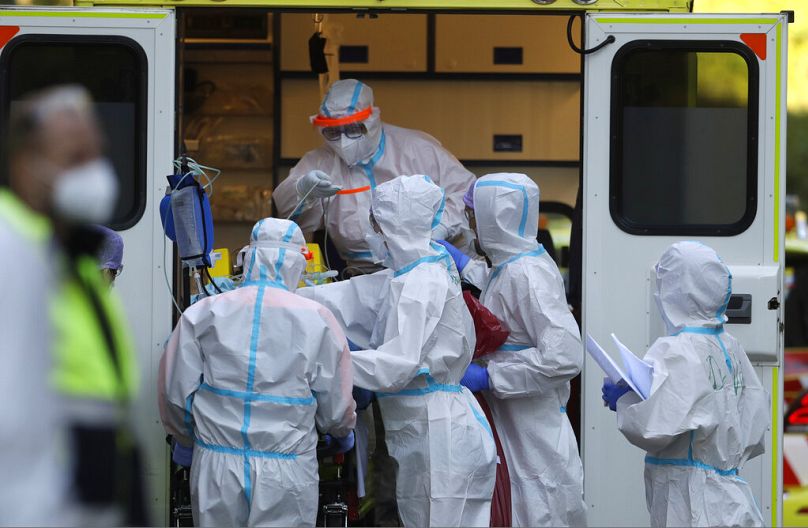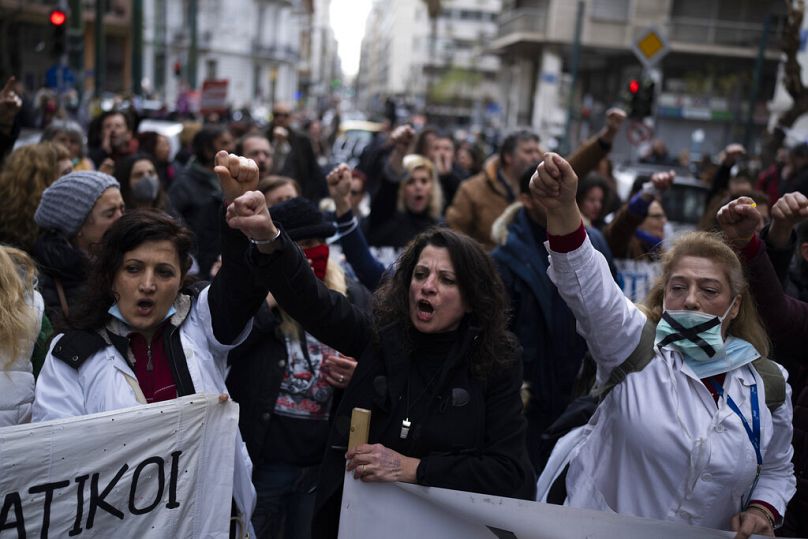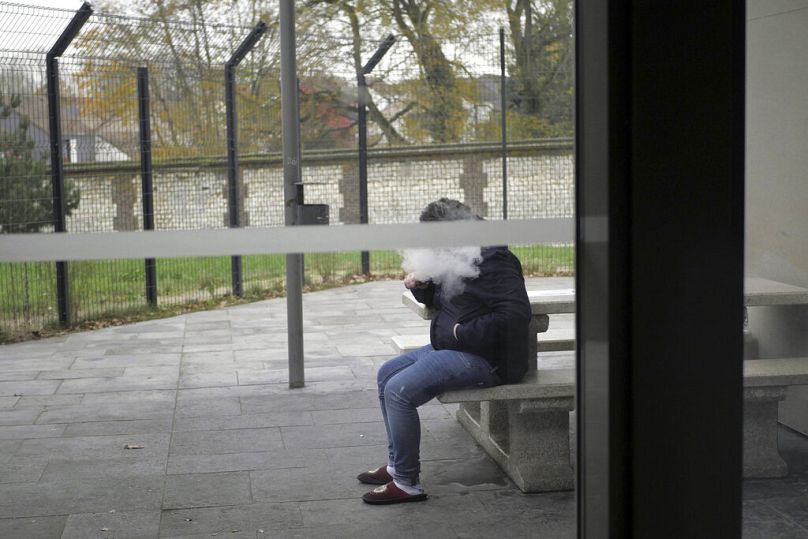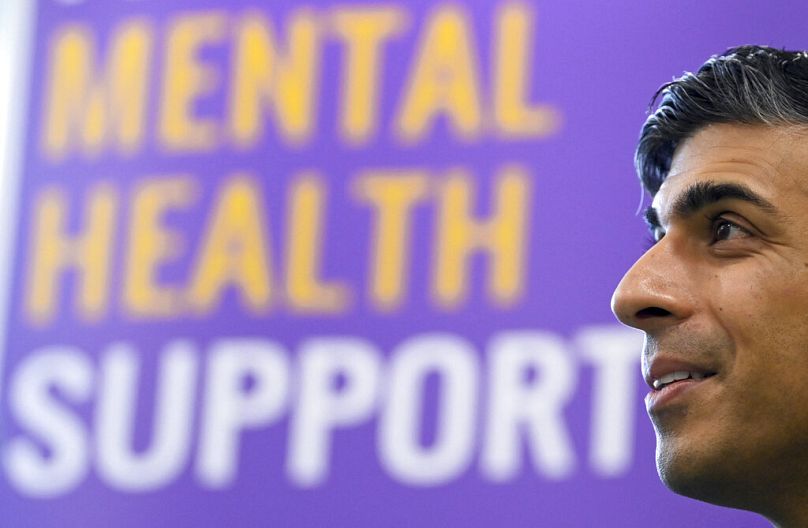The COVID-19 pandemic was a wake-up call that showed how health is central to the functioning of all of society. In a well-being economy, health is not just a beneficiary — it's its driving force, Dr Hans Henri P Kluge writes.
We are at a watershed moment across WHO’s European Region, comprising nearly 1 billion people in 53 countries across Europe and Central Asia.
A cost-of-living crisis is deeply affecting people across income levels, backgrounds, and socioeconomic status.
Through no fault of their own, 600,000 people have lived shorter lives than they should due to an under-investment in human development and health systems before the COVID-19 pandemic.
Mental health is at an all-time low — we’ve documented a three-fold increase in 18-24-year-olds reporting poor mental well-being.
These shocking statistics, from a new paper we discussed at the recently concluded, first-ever WHO European Region Health in the Well-being Economy High Level Forum, show that we are facing a vicious cycle of widening social fractures across Europe and Central Asia.
The Pan-European Commission on Health and Sustainable Development, chaired by former Prime Minister of Italy and EU Commissioner Prof Mario Monti, highlighted these damaging social fractures against the backdrop of the COVID-19 pandemic.
In a comprehensive report published in 2021, the European Commission warned of increasing instability, lack of social cohesion and widening health inequalities.
The main cause? Low trust in institutions and increased pressure on health and welfare systems.
When trust dwindles, health comes under threat
When people lose trust in their institutions and communities, we all lose.
We saw this during the pandemic — countries with higher levels of trust generally saw better adoption of public health measures, resulting in better infection control.
The European Commission’s report also showed that trust and health are inextricably linked. When people’s trust wanes, we see instability, lack of social cohesion and inequalities getting wider.
But we can stop this cycle if we choose fairness over inequality and inclusive growth over economies which favour growth at any cost and when we let health and well-being drive progress and change.
And this is what well-being economies are. They promote investments and practices that focus on economic well-being while also taking into consideration planetary, human, and social health.
Well-being economies are fair and equitable. And they see progress as an all-of-society investment.
Health should be at the heart of any society
It is clear that a well-being economy goes beyond either the health or finance sectors alone.
There is increased concern that markets alone cannot protect us from future shocks. Austerity-focused responses to the 2008 financial crisis led to a widening of health inequalities, with the squeezed middle class being hit the hardest.
Countries that followed this path also evidenced slower recoveries and reduced trust in government. Most importantly, we know that markets alone cannot protect or promote health and well-being.
We in the health community need to step up and work in close collaboration with other sectors to build fair and inclusive societies and economies which deliver for all.
At this month’s landmark Forum in Copenhagen — attended by the Prime Minister of Iceland and the Ministers of Health of other countries in our Region — we began a new journey.
We heard of how some countries are already shifting to well-being economies, putting health, fairness and prosperity at the heart of their economies and societies.
This is a journey that puts people’s health at the heart of inclusive economic growth. It’s a journey that transforms the health sector to ensure health is not just a beneficiary of the well-being economy—but a driver.
Why is health key to the well-being economy?
We believe that today’s main challenges have a solution and one that is rooted in both health and equity.
For instance, increases in unemployment have disproportionately affected women and young people, and we have evidence suggesting a 40% increase in young people’s decline in mental health.
In a well-being economy, the solution would be to promote the well-being of youth by including mental health support as part of general well-being services.
Another key example is the issue of trust. People on low incomes are now 50% less likely to report trust in others than they used to be in 2003.
In a well-being economy, non-discriminatory laws promote trust in others, which in turn contributes to health and well-being.
When a mother knows she will receive the care she needs — regardless of her income or race — her trust in others and society as a whole goes up. And she will be more likely to use health services and stay healthy in the longer run.
The evidence is clear. When we put equity and health at the heart of our policies, strengthening trust in our systems, everyone stands to benefit.
The push to leave no one behind
The pandemic was the wake-up call that showed how health is central to the functioning of all of society.
Even before the pandemic, analysis from across the European region showed that an average-sized country, with a population of 60 million, could improve the lives of 250,000 people in just four years by investing in universal healthcare, decent work, affordable homes and secure neighbourhoods, increasing GDP by as much as 4.2%.
Over the last 10 years, countries such as New Zealand and Iceland, which are investing in well-being economies, have seen economic growth alongside improvements in life satisfaction and health, where people are thriving, despite the inter-linked crises.
Across the region, Finland, Norway and, in the UK, Wales and Scotland are also proving to be real, concrete, innovative well-being engines of change.
By shifting investment, spending and resources, with health at their heart, we can rebuild trust. At the same time, we need to forge essential partnerships with finance, labour and development sectors and with key UN, civil society and donor agencies to ensure long-term commitment to this new and inclusive economic agenda.
As unemployment rises across our region, women and young people are disproportionately affected. In addition to these high-level events, we will be working with the OECD on closing the health and economic deserts by placing well-being at the heart of rural populations.
The push to leave no one behind is at the heart of our European Programme of Work, United Action for Better Health.
Social justice means ensuring health for all, as envisioned by WHO at its founding 75 years ago, and being able to live a life of dignity — for everyone, everywhere.
Dr Hans Henri P Kluge has been the World Health Organisation's Regional Director for Europe since 2020.
At Euronews, we believe all views matter. Contact us at view@euronews.com to send pitches or submissions and be part of the conversation.



















